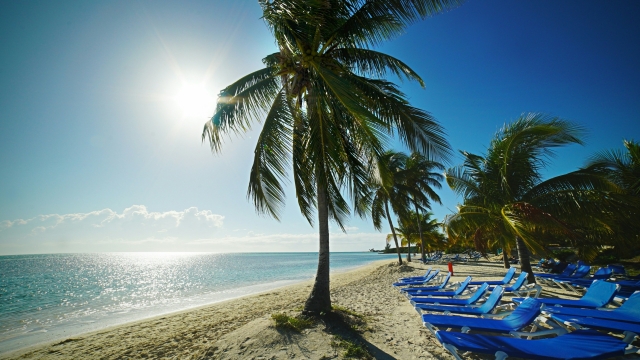Many large cruise ship lines, such as Royal Caribbean, have their corporate headquarters in the Bahamas. Other multinational companies are headquartered in the Bahamas. This island chain is close enough to America to keep a close eye on the business and far enough away to qualify for Hague Convention service of process and other procedural protections.
At Ancillary Legal, jumping over hurdles is what we do best. Our team is fully familiar with the complex rules governing service of process in places like the Bahamas. So, to us, serving documents in Nassau is just as easy as serving documents in Homerville. We also provide ongoing litigation support for the duration of a civil case. In other words, we help lawyers do what they do best.

Domestic laws and international agreements form the legal framework for service of process in the Bahamas.
The key domestic legal framework is the Rules of the Supreme Court (RSC), which apply to both civil and commercial matters. The RSC set forth certain principles of fairness and notice which all service of process must adhere to.
In addition, the Bahamas is a signatory to the Hague Convention on the Service Abroad of Judicial and Extrajudicial Documents in Civil or Commercial Matters (1965), commonly known as the Hague Service Convention. This Convention establishes uniform procedures for serving legal documents between countries, such as the U.S. and the Bahamas, that are parties to the agreement.
Officials from the Bahamas signed the Hague Service Convention in 1986, making it a critical tool for facilitating the international service of process. The Convention standardizes the methods of serving documents internationally, ensuring that legal proceedings are fair and transparent, regardless of the country where the defendant resides.
In member nations such as the Bahamas, the Hague Convention allows several methods of service for documents, including:
● Service through the Central Authority: This is the primary method of service through this Convention. Documents are sent to the governmental office established to handle the incoming requests from foreign plaintiffs. This entity then will send the request to the local court, and then service will be attempted in accordance with the country’s laws, usually by a court bailiff or something similar.
● Direct Service by a Judicial Officer: A foreign plaintiff may request that their country’s judicial officers serve the legal documents directly to a Bahamian defendant. This method typically involves the use of a process server or an officer of the court.
● Service Through Diplomatic or Consular Channels: Documents can also be served through the embassy or consulate of the requesting country. This method ensures that the legal notice is formally delivered, although it may take longer, mostly due to diplomatic procedures.
● Service by Mail: Under the Hague Convention, service of process may also be executed by mail, provided that the recipient has consented to this method. However, this is only allowed if the defendant’s country permits service by post, and it ensures that proof of delivery is obtained.
If traditional methods of service under the Hague Convention are not feasible, substituted service is an option. This method usually involves posting the documents in a manner that ensures the defendant receives proper notice, such as through publication in a local newspaper or other widely circulated medium.
Always allow additional time for international service. Documents must pass through multiple channels, including the central authority, the recipient country’s authorities, and possibly consular or diplomatic channels.
Furthermore, all legal documents must typically be translated into the official language of the receiving country. In the Bahamas, English documents are usually acceptable, but translations may be required in certain situations.
A non-U.S. address makes a complex case even more complex. For more information, contact Ancillary Legal at (404) 459-8006. The sooner you reach out to us, the sooner we start working for you.

Contact us for a free consultation with an Ancillary Legal representative.